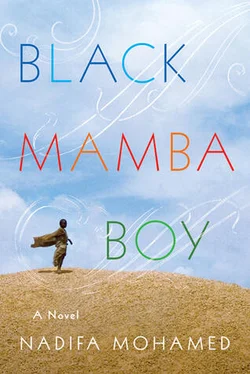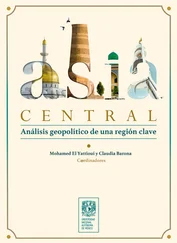“We can sell these for six pennies to the soldiers and clerks in Midan Saad Zaghloul,” Liban whispered. “Enough to buy bread and pay for the room.”
Although small and immature-looking, Liban was a wily, knowledgeable guide: he had been in Alexandria for a year waiting to join the Royal Navy and was cynical about Jama’s chances.
“The British army is based in Port Said, why don’t you come with me and see if we can find work there?” Liban asked. “We’ve been given fake army papers by a man who’s just collected his passport at the British consulate. We’ll find work in Port Said, wallaahi.” Jama was adamant he would stay and try his luck with the merchant navy.
“You don’t have a chance, brother, it’s nearly impossible to get a passport, and you can’t get a navy job without it,” said Liban, shaking his head.
As they spent the day together, Jama learned that Liban was Yibir, but that in Alexandria, Somalis of all clans fell upon one another for news, companionship, and help. Liban had left Somaliland because of hunger and to escape the harassment his family suffered. Even now his British passport was held up in Hargeisa because no elder would claim a Yibir as part of his clan and the Yibir were forbidden by the British from appointing an aqil of their own. In Egypt, Ajis would share cups with Liban, eat with him, befriend him because there was no one to judge them, but their acceptance was a vapor that would burn away under a Somali sun. A Yibir wore the name of his clan like a yellow star, it marked him as low, dirty, despicable. A Yibir learned from infancy that he had nothing to be proud of, no suldaans to boast about, no herds of camels, no battalions of fighters. In a land of scarcity and superstition, myths were hard currency, and rather than claiming a Sharif, a descendant of the prophet, as their first father, the Yibros had a pagan, an African magician who believed he could defeat the Muslim missionaries. For this heresy they had been cursed to be hewers of wood and drawers of water, to work leather and metal while the Ajis roamed with their noble camels. Even when Ajis wiped their hands after touching him, Liban had learned to avert his gaze, to pretend that it was natural for them to believe he could contaminate them, but the farther he fled from Somaliland, the less his Yibirness mattered. In Egypt all the Somalis wore the same yellow star; their black skin taught the Ajis what it was to be despised.
More Somalis from the apartment gathered in the square, emerging from Shari El-Eskandar el-Akbar. They greeted Liban and shook Jama’s hand. All had cigarette packs in their hands, hawking them all day in the sun, tiring their bodies so they could sleep soundly at night. Underneath them, on the ground floor, was a cabaret club, and music pulsed through the floors of their cramped apartment. Jama sometimes poked his head into the cabaret, where a dancer called Sabreen had befriended him, a beautiful Punjabi with large brown eyes and suggestive lips whom he called Hindiyyadi, the Indian girl. Jama’s chief pleasure in Alexandria was to creep down at night and watch through the alley window as Sabreen danced cobralike from the depths of a large basket, cavorting and jiggling in the shisha smoke. Soon Liban began watching her, and then the other Somalis, until Sabreen had a dedicated following of Somali alley cats peering in through the window.
Jama joined in with the daily routine of Liban and the others, buying cheap cigarettes at the dock and selling them for a penny profit to pay for the room. He boasted of his life in Gerset to all and sundry, his shop, his farm, his twenty employees, his beautiful wife. The Somalis humored him but made alcohol-guzzling gestures behind his back. He slipped out alone one day to change his inheritance into Egyptian pounds and never mentioned it to Liban or the others, worried that they would ask to borrow a share or even steal away with it in the night. He had to shred the prayers that had protected the Adeni notes for so long, collecting all the sacred wisps of paper and stuffing them into his trouser pocket.
On the façades of the cinemas were film posters, blown-up images of sleek men and their smoldering dames snarling down on the mortals beneath them. Jama stared up at the actors, wondering what they had done to achieve such glory; the posters drew his gaze more than the statues and grand buildings. He had never seen a film but concocted his own stories from the pictures: that one is fighting the rich man for the woman, this one wants revenge but doesn’t have the courage to grasp it. He grew a pencil mustache like the film men, so that he looked like a matinee idol playing the role of a man down on his luck. One day he borrowed a black jacket and a white shirt, combed his hair neatly to the side, and had his photograph taken in a cheap studio. He stared for a long time at the man in the photograph. He had the same expression as the film men, but his black eyes betrayed him; they were looking ever so slightly up at the sky, waiting for the stars to take mercy on him. Jama took the strange image and thrust it into the clerk’s face at the British consulate. “Give me a passport,” he demanded in Arabic.
Jama was asked to give his name, his address in Alexandria, his birth date, which he made up, his clan and the name of his clan’s aqil, and was told haughtily that he would be double-checked by the authorities in Hargeisa. He hesitated before handing over his photograph. He was the first in his family to have this paper twin made. He wanted people in centuries to come to point at the picture and say, “This is Jama Guure Mohamed, and he walked this earth.” He believed he would never die if his face survived him.
“It could take months, Jama, if they ever get back to you. Look at me; I have been waiting nearly a year,” Liban said as they left the office. “Let’s try our luck in Port Said in the meantime.” Jama nodded noncommittally and they sat by the duck pond in the municipal park.
Like Aden, cosmopolitan Alexandria was not an easy place for poor Africans. People looked through them as if through vapor or stared at their bodies dissectingly, commenting on their teeth, noses, backsides. Alexandria belonged to the pashas who walked down streets cleaned for them, past doors held open for them, into hotels and shops where people quivered and fluttered around them.
After enduring three months in Alexandria, Jama was running out of money and patience. On a sultry morning, after a fretful sleepless night, he shook Liban awake. He had ten shillings left of the money his mother’s sweat had given him, and he wanted something honorable to grow out of it, not this sleazy vagrant life. “Come on, then, let’s get out of this stinking place and try our luck in Port Said,” he told Liban.
Jama had no desire to join another army but needed to escape from the poverty of Alexandria. He spent every day dwelling on the bitterness Bethlehem would feel if he returned to Gerset empty-handed, having wasted the little money on which they could have built a life. He avoided the sailors returning to Somaliland through Eritrea, not wanting them to report back his poverty; he believed that Bethlehem would prefer happy dreams to gloomy reality. The apartment was a depressing place now, as many of the other Somalis had left for Port Said or Haifa, and those left behind were doomed to return to unemployment in Somaliland. Liban and Jama set off on foot for Port Said, eager to spare the remains of their money. They followed the Mediterranean coastline east for more than a hundred miles, passing through the outskirts of many small towns, but when they reached Damietta, two Egyptians in tarbooshes approached them, blocking their path. The plainclothes police officers demanded the Somalis’ papers. Liban proffered his fakes, while Jama left his hand-me-down papers in his shoe. The Egyptian took Liban’s certificates and gave them a cursory appraisal.
Читать дальше
Конец ознакомительного отрывка
Купить книгу












